The Association for Pet Obesity says that over half of the dogs in the United States are overweight. That number is the same in the United Kingdom, and it’s a growing problem in other parts of the world as well. This means that there is a good chance your Cavalier King Charles is overweight. There are many things that could be contributing to the extra weight gain, including health issues, lack of exercise, and/or too much food. First though, you need to determine if you think your Spaniel is overweight. If so, take her to the vet to have her checked for medical conditions and to decide on a diet and exercise plan to get her back to her svelte self. The following are three signs your King Charles Spaniel is overweight.
How Much Should King Charles Spaniel Weigh?
13 to 16 Lbs

#1 – No Definition
Cavalier King Charles Spaniels should have a chest and rib cage that tucks up to a smaller “waist” at their hip bones. If you can’t feel those ribs or tell where his rib cage ends and his hips begin, it’s probably time to diet. Dr. Sophia Yin’s website has a great, easy to follow guide for checking this.
#2 – Unable To Reach That Itch
Does your Cavalier try to scratch her ear and just can’t reach? Or maybe it’s impossible for her to bite herself. She should be able to groom herself without a struggle. If they are overly round, grooming becomes impossible. If that’s the case with your King Charles, it’s time to diet.
#3 – Easily Overexerted
Do you walk a few steps and your Cavalier is already panting and wanting to stop? Barring hot weather, this is a sign that he is out of shape and probably overweight. It’s time to talk to the vet about a diet and exercise regimen that will slowly get him back on track. Be careful about pushing your King Charles Spaniel to exercise more than their body can handle – that can cause other issues.
Frequently Ask Questions
If allowed to put on weight as puppies, Cavalier King Charles Spaniels will likely carry that excess weight into adulthood. Excess weight places additional stress on our pets’ musculoskeletal and cardiovascular systems, which raises their risk of injury, necessitates more veterinary care and cuts their lifespan short. Find out what you need to know about healthy weights and helping to keep your Cavalier King Charles Spaniel living a long, happy life.
Is My Cavalier King Charles Spaniel Fat?
Some of the best indicators that your Cavalier King Charles Spaniel has gained excess are a lack of definition of their body. For example, if you cannot see a defined waistline, your spaniel is overweight. You should be able to make out the ribcage, hip bones, and waist on your Cavalier King Charles Spaniel. Mind you, their long fur coat can obscure their ribcage.
Next, maybe your Cavalier King Charles Spaniel has a hard time scratching his ear because of his pudginess. Pet dogs, especially Cavalier King Charles Spaniels, enjoy grooming themselves. If your pup has stopped bathing himself properly for a lack of ability to reach, it’s time for a diet.
If so, the fluffy guy has put on some serious pounds. In addition to being overweight, your Cavalier King Charles Spaniel may be showing signs of a protruding tummy. Consult with a veterinarian to find out if there is a medical reason the abdominal distention.
While Cavaliers are known to like walks, you should not be surprised if your dog shows resistance to coming to the park or begins to tire midway through from excessive weight. He may even become sluggish or have problems breathing. Sluggish couch potato pups are most likely to deal with these weight concerns.
If your pup looks chunky or carries a belly around everywhere he goes, it’s time to consider changes for his health. Obesity in dogs can dramatically reduce their lifespan and lead to health problems like diabetes. Even if your dog loves to eat, it’s best to reduce their food to a healthy amount to keep them enjoying life.
Cavalier King Charles Spaniel Weight Chart By Age
No two spaniels will weigh exactly the same amount but having an idea of their estimated healthy weight can help to protect them. Here are the standard weights for both boys and girls.
| Age | Estimated Weight |
| 1 Month | 1.5-2.5 Ibs |
| 2 Months | 4-5.2 Ibs |
| 3 Months | 6.5-8.5 Ibs |
| 6 Months | 10.5-14 Ibs |
| 8 Months | 12.5-16 Ibs |
| 10 Months | 12.7-17 Ibs |
| 12 Months | 13-17.5 Ibs |
| 16 Months | 13-18 Ibs |
| Adulthood | 13-18 Ibs |
How Much Does The Average Cavalier King Charles Spaniels Weigh?
By adulthood, your dog should weigh between 13 and 18 pounds. However, male and female Cavalier King Charles Spaniels are around the same size, which is unusual among dog breeds. Although, when comparing male and female Cavalier King Charles Spaniels, the former are significantly larger and more muscular, while the latter are notably thinner and less muscular.
How Much Does A 4 Month Old Cavalier King Charles Spaniel Weigh?
By the time your puppy reaches four months old, she should weigh between 7 and 10 pounds, depending on gender. Keep in mind that most puppies reach their full physical potential at this age, being slender and full of energy. It is usual for a puppy to be on the lighter side, and having some visible ribs is fine. On the contrary, if your puppy seems chunky, it is usually time to cut back on his food intake.
How Much Does A 5 Month Old Cavalier King Charles Spaniel Weigh?
You should expect your Cavalier to weigh between 9 and 13 pounds at 5 months old. Even at this young age, he weighs nearly as much as he will as an adult. While your puppy’s hair will continue to develop for quite some time still, his body will soon stop expanding. Your Cavalier’s chest will expand, and his muscles will develop as he nears his first birthday.
How Much Does A 8-Week Old Cavalier King Charles Spaniel Weigh?
By the time week, 8 is over, your spaniel puppy will have reached between 4 and 5 inches in height and will weigh between 4 and 5 pounds. Remember, do not worry about limiting your puppy on food during this stage. Their mother will take care of their puppy’s food for another few weeks.
What Is The Ideal Healthy Weight For A Cavalier King Charles Spaniel?
Cavaliers can weigh anywhere from 13 to 18 pounds. However, a Cavalier should weigh between 14 and 16 pounds for peak health. Cavaliers with unhealthy weights (either too much or too little) can experience serious health problems.
How Big Does A King Charles Spaniel Get?
You can expect your spaniel to stay tiny as they do not usually measure more than 12 to 13 inches and weigh 13 to 18 pounds. As a toy breed, these pups stay small; however, the breed is relatively large for a toy animal.
Is A King Charles Cavalier A Small Or Medium Dog?
The Cavalier King Charles Spaniel, commonly abbreviated as a CKC, is considered a toy dog breed. However, it is conceivable their dietary needs are different from other toy dog breeds because they are among the largest of the toy dog kinds. However, they are much bigger than other toy dog breeds like Chihuahuas and Maltese. The Cavalier King Charles Spaniel may be one of the bigger toy breeds, but he is still a small dog that can be carried around easily in your arms. They can also accompany their owners to almost any location.
How Heavy Should A King Charles Spaniel Be?
Your Cavalier King Charles Spaniel should stay tiny, between 13 and 18 pounds, with similar height in inches. It is preferable to have a canine that is tiny, healthy and falls within these weight ranges.
How Many Calories A Day For A King Charles Spaniel?
Your Cavalier King Charles Spaniel will reach full adult size at 18 months of age and will have the same adult weight as it did at one year of age. Your dog’s needs will remain the same, whether it is a puppy or an adult. From ages one to seven, your pup needs about half to one and a half calories of food per day for a total of 325 to 750 calories. Try to keep protein around 18 percent and fat on the lower end under ten percent.
How Can I Help My Overweight King Charles Spaniel?
You should take your Spaniels to the vet to rule out any underlying medical issues like hypothyroidism or diabetes before making any dietary or exercise changes. Next, ensure your dog is not getting more than two cups of food and treats per day.
Despite being more expensive, high-quality kibble typically contains more protein and fat than filler carbohydrates. Dogs did not eat carbohydrates before they were domesticated, and their digestive systems were not designed to do so. Wet food is preferable to kibble because it contains fewer carbohydrates, more protein, and more water. If you want to help your dog exercise without causing any harm, take it for long, slow walks during cool hours.
Getting your spaniel more active will also speed up his weight loss. Intake minus calorie expenditure determines whether a dog will gain or lose weight. There will be weight loss if his caloric expenditure exceeds his intake. A spaniel is recommended to get at least 60–80 minutes of exercise per day (excluding additional playtime).
How Much Should A King Charles Spaniel Eat A Day?
Cavalier King Charles Spaniel puppies daily have a dietary need of approximately 1/4 to 1 cup of dog food. When the dogs are older, their owners will need to start feeding them more substantial meals. Every day, an adult Cavalier King Charles Spaniel should consume between one and one and a half cups of food. Only around 3/4 to 1 1/4 cups are required daily for senior dogs.
Overweight Breed Informational Pages
- Is My Bulldog Overweight Or Obese?
- Is My Chihuahua Overweight Or Obese?
- Is My Corgi Overweight Or Obese?
- Is My Dachshund Overweight Or Obese?
- Is My Doberman Overweight Or Obese?
- Is My German Shepherd Overweight Or Obese?
- Is My King Charles Spaniel Overweight Or Obese?
- Is My Lab Overweight Or Obese?
- Is My Maltese Overweight Or Obese?
- Is My Pit Bull Overweight Or Obese?
- Is My Pomeranian Overweight Or Obese?
- Is My Rottweiler Overweight Or Obese?
- Is My Shih Tzu Overweight Or Obese?
- Best Joint Supplement for Dogs
- Best CBD Gummies for Dogs
- Goat's Milk for Dogs
- Skin & Coat Supplements for Dogs
- Weight Gain Supplements for Dogs
- Muscle Building Supplements for Dogs
- Heart Supplements for Dogs
- Multivitamins for Dogs
- Pill Pockets for Dogs
- Digestive Enzymes for Dogs
- Turmeric for Dogs
- Liver Supplements for Dogs
- Tear Stain Supplement for Dogs
- Breath Fresheners for Dogs
- Kidney, Urinary, & Bladder Supplements for Dogs
- Stool Eating Deterrent for Dogs
- Eye Supplements for Dogs
- Melatonin for Dogs
- Apple Cider Vinegar for Dogs
- Green Lipped Mussels for Dogs
- L Theanine for Dogs
- Chondroitin Supplements for Dogs
- MSM for Dogs
- Valerian Root for Dogs
- Chamomile for Dogs
- Boswellia for Dogs
- L Tryptophan for Dogs
- Yucca for Dogs
- Licorice Root for Dogs
- Bromelain for Dogs
- Papain for Dogs
- Devil's Claw for Dogs
- Quercetin for Dogs
- Hemp gummy for dogs
- Best Hemp Dog Treats
- Best Hemp Oil for Dogs
- Best Calming Treats, Chews, & Supplements for Dogs
- Best Bone Broth for Dogs
- Best Fish Oil for Dogs
- Best Probiotics for Dogs
- Best Hip Dysplasia Supplements for Dogs
- Best Colostrum for Dogs
- Best Quercetin for Dogs
- Best Greens for Dogs Supplements
- Best Vitamin C Supplements for Dogs
- Best Probiotic for Dog with Allergies
- Best Taurine Supplements for Dogs
- Best Dog Food Toppers
- Best Anal Gland Supplement for Dogs
- Best Dog Probiotic Powder
- Best CoQ10 Supplement for Dogs
- Best Liquid Glucosamine for Dogs
- Best Wrinkle Creams, Balms, and Wipes for Dogs
- Best Puppy Calming Treats
- Best Colloidal Silver for Dogs
- Best Adaptogen Supplements for Dogs
- Best Cognitive Supplements for Dogs
- Best Bee Pollen for Dogs
- Best Vitamin A Supplements for Dogs
- Best Vitamin E Supplements for
- Best Liquid Glucosamine Supplements for Dogs
- Best SAM-e Supplements for Dogs
- Best Hyaluronic Acid Supplements for Dogs
- Best Apple Cider Vinegar Supplements for Dogs
- Best Diarrhea Medicine for Dogs
- Best Milk Thistle for Dogs
- Best Turkey Tail Mushroom Supplements for Dogs
- Best Astaxanthin Supplements for Dogs
- Best Lutein Supplements for Dogs
- Best Electrolyte Supplements for Dogs
- Best Coconut Oil for Dogs
- Best Prenatal Vitamins for Dogs
- Best Puppy Milk Replacements
- Best Iron Supplements for Dogs
- Best Dewormer Products for Dogs
- Best Mange Medications for Dogs
- Best Cough Relief Products for Dogs
- Best Sinus Relief Products for Dogs
- Best Collapsed Trachea Supplements for Dogs
- Best Fireworks Anxiety Relief Products for Dogs
- Best Thunderstorm Anxiety Relief Products for Dogs
- Best Travel Anxiety Relief Product for Dogs
- Best Supplements for a Dog with a Torn ACL
- Best Supplements for a Dog with Patellar Luxation
- Best Supplements for a Dog with Intervertebral Disc Disease
- Best Zinc Supplements for Dogs
- Best Biotin Supplements for Dogs
- Best Tart Cherry Supplements for Dogs
- Best Resveratrol Supplements for Dogs
- Best Ginkgo Biloba Supplements for Dogs
- Best Ashwagandha Supplements for Dogs
- Best Supplements for Dogs with Cushing's Disease
- Best Adrenal Supplements for Dogs
- Best NAD+ Supplements for Dogs
- Best NMN Supplements for Dogs
- Best Supplements for Dogs with Dementia
- Best Supplements for Dogs with CCD(Canine Cognitive Dysfunction)
- Best Fiber Supplements for Dogs
- Best Spirulina for Dogs
- Best Hairball Remedies for Dogs
- Best Eye Drops for Dogs with Allergies
- Best Magnesium Supplements for Dogs
- Best Brushes for Double-Coated Dogs
- Best Dandelion Root Supplements for Dogs
- Best Probiotic for Dogs with Yeast Infections
- Best Flaxseed Oil for Dogs
- Best Chamomile Supplements for Dogs
- Best Lavender Supplements. Treats & Sprays for Dogs
- Best Collagen Supplements for Dogs
- Best Kelp Supplements for Dogs
- Best Activated Charcoal for Dogs
- Best Slippery Elm Supplements for Dogs
- Best Supplements for Dogs with Seizures & Epilepsy
- Best Antioxidant Supplements for Dogs
- Best Ubiquinol Supplements for Dogs
- Best Hormone & Glandular Supplements for Dogs
- Best Thyroid Supplements for Dogs
- Best Iodine Supplements for Dogs
- Best Dog Shedding Supplements for Dogs
- Best Detox Supplements for Dogs
- Best Postbiotics for Dogs
- Best Aspirin Products for Dogs
- Best Dog Anti-Nausea Products
- Best Dog Mouthwashes
- Best Camelina Oils for Dogs
- Best Hemp Seed Oils for Dogs
- Best Natural Anti-Inflammatories for Dogs
- Best Cancer Supplements for Dogs
- Best Sardine & Anchovy Oils for Dogs
- Best Fatty Acid Supplements for Dogs
- Best Chia Seed Supplements & Treats for Dogs
- Best Olive Oils for Dogs
- Best Amino Acid Supplements for Dogs
- Best Moringa Supplements for Dogs
- Best Echinacea Supplements for Dogs
- Best Cranberry Supplements for Dogs
- Best D-Mannose Supplements for Dogs
- Best Nettle Leaf Supplements for Dogs
- Best Marshmallow Root Supplements for Dogs
- Best Astragalus Supplements for Dogs
- Best Pumpkin Seed Supplement for Dogs
- Best Supplements for a Dog Wetting The Bed
- Best Blueberry Supplement for Dogs
- Best Bromelain Supplements for Dogs
- Best Yucca Supplements for Dogs
- Best Ginger Supplements for Dogs
- Best Rosehip Supplements for Dogs
- Best Allergy Medicines for Dogs
- Best Reishi Mushroom Supplement for Dogs
- Best Maitake Mushroom Supplement for Dogs
- Best Chaga Mushroom Supplement for Dogs
- Best Shiitake Mushroom Supplement for Dogs
- Best Cordyceps Mushroom Supplement for Dogs
- Best Lion's Maine Supplement for Dogs
- Have question? - Ask in our Dog Health Forum

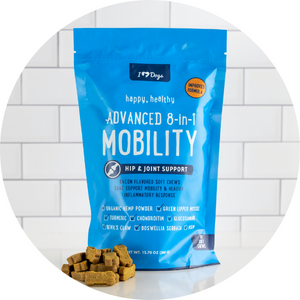
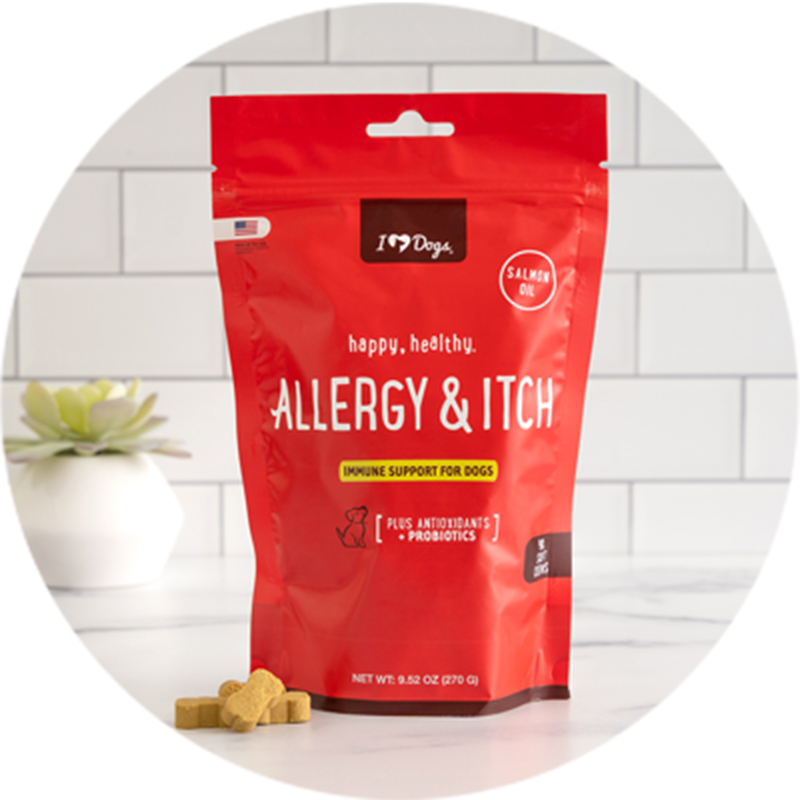
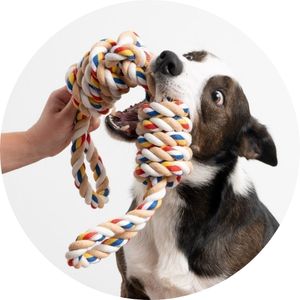
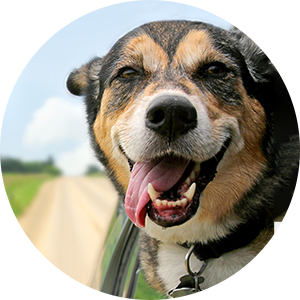
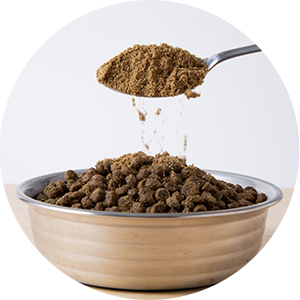
 Toledo, United States.
Toledo, United States.